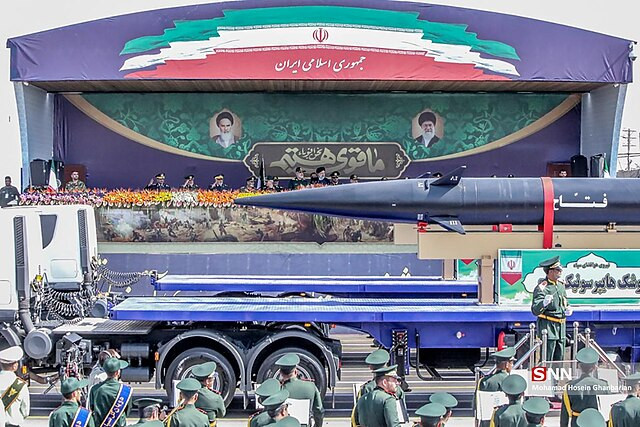Iran launched hundreds of ballistic missiles at Israel Friday night after an unprecedented Israeli military operation killed more than 20 of Iran's top commanders and nuclear scientists, including IRGC chief Hossein Salami and armed forces chief of staff Mohammad Bagheri. Explosions were reported over Tel Aviv, Jerusalem, and multiple nuclear and military sites inside Iran, marking the region's most intense escalation in decades.
"In retribution for the blood of our fallen commanders, scientists and citizens, the gates of hell will soon be opened upon this child-killing regime," Major General Mohammad Pakpour, Salami's successor as IRGC commander, declared on Iranian state TV.
The Israel Defense Forces said Iran's barrage began late Friday, following Israel's Thursday strike under "Operation Rising Lion." The IDF reported: "A short while ago, the IDF identified missiles launched from Iran toward the territory of the State of Israel. Defense systems are operating to intercept the threat." The public was instructed to seek immediate shelter.
Iran's IRNA news agency confirmed that "hundreds of ballistic missiles" were launched in retaliation for Israel's earlier strikes, which targeted Natanz, Fordow, Isfahan, and missile sites surrounding Tehran. Israel's military confirmed that more than 200 fighter jets were deployed and 330 munitions launched.
A senior Israeli official said the goal of the strike was to prevent Iran from acquiring nuclear weapons after intelligence indicated the Islamic Republic had amassed enough material for up to 15 bombs. Netanyahu stated: "This operation will continue for as many days as it takes to remove this threat."
Iranian state media confirmed the deaths of at least 20 top military commanders and six nuclear scientists. Among the slain were:
- Major General Hossein Salami, IRGC commander and one of Iran's most powerful figures
- Major General Mohammad Bagheri, armed forces chief of staff
- Six senior nuclear scientists, including personnel tied to the AMAD nuclear program
Iran's Supreme Leader Ayatollah Ali Khamenei accused Israel of launching a war and vowed the regime would "deeply regret this reckless aggression." Foreign Minister Abbas Araghchi filed an emergency complaint with the U.N. Security Council, calling Israel's actions "clear instances of state terrorism."
While Iran's missiles struck near Tel Aviv and Jerusalem, there were no immediate reports of casualties. Air defenses intercepted many projectiles, although damage assessments are ongoing.
Trump administration officials said they had prior knowledge of Israel's plans. "They knew about the attack. What will they do now? I leave that to President Trump," Netanyahu said. Trump posted on Truth Social: "Iran must make a deal, before there is nothing left."
U.S. envoy Steve Witkoff is still scheduled to travel to Oman for nuclear negotiations, though it remains unclear whether Iranian officials will attend following the strikes.
According to a Newsweek report, Israeli intelligence teams, including Mossad operatives, were operating inside Iran ahead of the assault. One Israeli security source said Mossad helped establish a drone base near Tehran and played a role in neutralizing "dozens of radars and surface-to-air missile launchers."
Civilian casualties have also been reported inside Iran. Local media showed images of destroyed residential buildings, claiming nearly 80 civilians were killed and more than 300 wounded. Iranian citizens described scenes of chaos and fear. "People on my street rushed out of their homes in panic," said a Tehran resident. In Qom, a Basij militia member told reporters, "I will fight and die for our right to a nuclear programme."
Oil prices spiked on fears of broader Middle East instability, though OPEC said there were no immediate changes to production levels.






